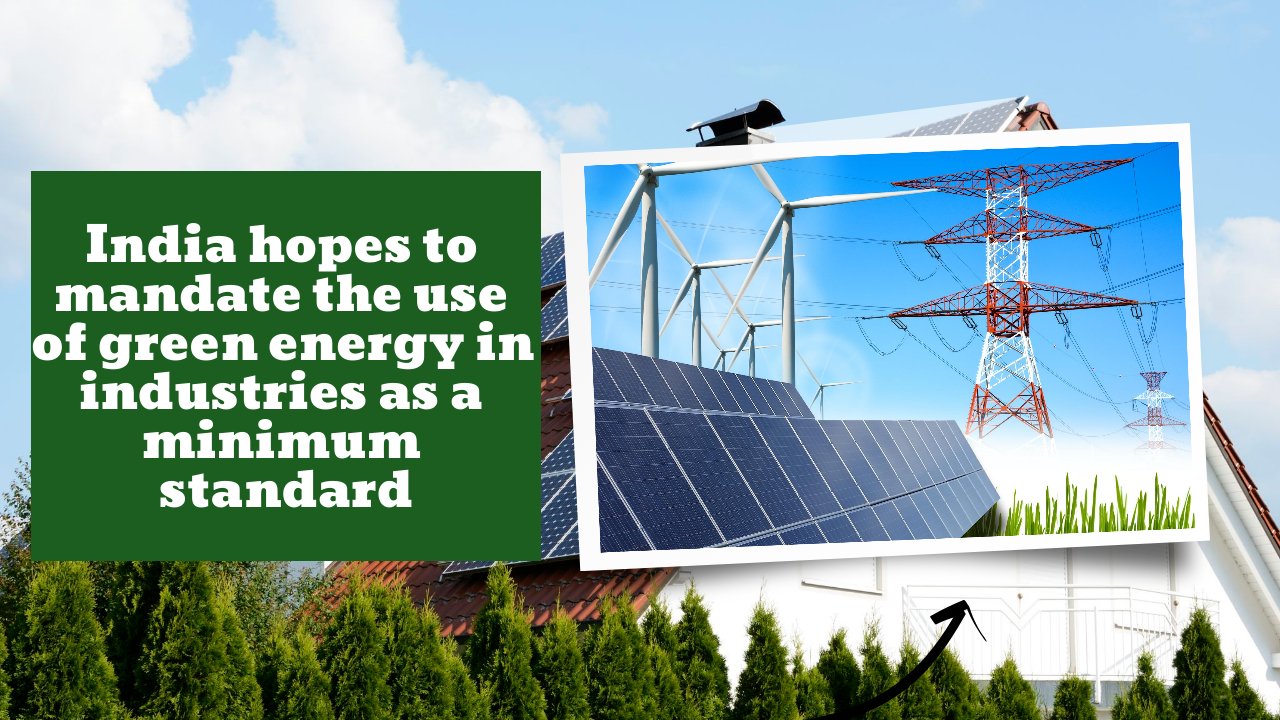The amendments that have been proposed will make it easier to develop a carbon market. Additionally, companies will receive carbon savings certificates to encourage the use of renewable energy. By 2030, Prime Minister Narendra Modi wants non-fossil fuels to account for more than 40% of the country’s installed power capacity.
Key Highlight:
- The government of India is considering changes to its laws that would require industrial units to use a minimum percentage of green energy.
- The government has not specified a minimum use percentage in its statement.
- By 2030, Prime Minister Narendra Modi wants non-fossil fuels to account for more than 40% of the country’s installed power capacity.
The government of India is considering changes to its laws that would require industrial units to use a minimum percentage of green energy in their overall electricity consumption to wean themselves off fossil fuels and combat climate change.
In a statement on Saturday, the government said that proposed amendments would make it easier for India to develop a carbon market while also requiring industrial units to use a certain amount of renewable energy.
According to a statement from India’s power ministry, a primary goal will be to increase demand for renewable energy in end-use sectors such as industry and construction while also making it easier to transition to “green hydrogen” as an alternative to current fossil fuels.
Additionally, companies will receive carbon savings certificates to encourage the use of renewable energy. The government has not specified a minimum use percentage in its statement.
A day before world leaders meet in Glasgow, Scotland, to discuss ways to reduce emissions and combat climate change, the proposed changes highlight Prime Minister Narendra Modi’s green push. By 2030, his administration aims to generate non-fossil fuel energy resources for more than 40% of the country’s installed power capacity.
Every year, India is the third-largest emitter globally, and it has historically been among the top ten emitters. India contemplated setting a net-zero goal earlier this year but hasn’t done so yet.
As part of India’s carbon efficiency goals, Modi announced a plan to reduce the country’s energy imports over the next 25 years in his Independence Day speech in August.
The government says the latest changes will be beneficial to reduce fossil fuel consumption and greenhouse gas emissions.
Wonderful initiative under Hon’ble PM Shri @narendramodi Ji, the proposal of new rules for India to take forward the green energy use in industries facilitating carbon market in India is a promising step.
— H Tovihoto Ayemi (@tovihoto) October 31, 2021
Read: https://t.co/Hg4dbi5Q3W@PMOIndia @RajKSinghIndia
Union Minister of Power & New and Renewable Energy @RajKSinghIndia launches the Green Day Ahead Market (GDAM). Know how this will boost India’s Renewable Energy Capacity.@mnreindia
— Prasar Bharati News Services पी.बी.एन.एस. (@PBNS_India) October 31, 2021
Watch: https://t.co/ip1lGR6Jps pic.twitter.com/c78qh8V44e





